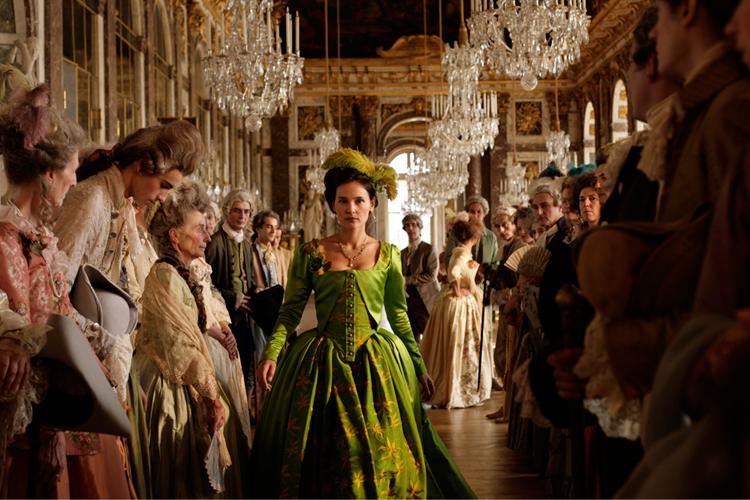Reviewed by GREG KING
Director: Benoit Jacquot
Stars: Diane Kruger, Lea Seydoux, Virginie Ledoyen

The lavish and visually stunning Farewell, My Queen is the sort of lavish costume drama that the French do so well. Based on the best selling novel by Chantal Thomas, and co-written with Gilles Taurant, Benoit Jacquot’s visually sumptuous drama is set in Versailles on the eve of the French Revolution, and explores this turbulent period of social upheaval. This film is laced with a palpable sense of danger as the end of an era approaches, and it explores themes of class, revolution, betrayal, desire, love and loyalty.
When the Bastille is stormed, most of the nobles continue with their daily routine, unconcerned by events in Paris. Some however flee with their servants. We never see the storming of the Bastille – the pivotal event of this turbulent time in French history – but we get a palpable sense of the panic and terror that gripped the court of Versailles in its aftermath.
For three days, Marie Antoinette (Diane Kruger, from Inglorious Basterds, Unknown, etc) remains in the palace certain that she will not be harmed. Sidonie Laborde (Lea Seydoux, from Woody Allen’s sublime Midnight In Paris, and who appears in the controversial Cannes winning film Blue Is The Warmest Colour), the Queen’s infatuated young sevant and devoted personal reader, remains by her side but struggle with her allegiance. Also remaining is the Duchess Gabrielle de Polignac (Virginie Ledoyen, from Jacquot’s 1995 film A Single Girl, etc), the Queen’s loyal friend and secret lover.
The film unfolds largely from Sidonie’s perspective, and through her eyes we gain some insights into the trappings of the court, the decadence of this privileged lifestyle, and the petty jealousies and power plays that occupy many of the courtiers and advisors. Veteran director Jacquot has always featured strong women in his films (The Disenchanted, The School Of Flesh, etc), and Farewell, My Queen is no exception.
Seydoux delivers a touching performance here in the central role, combining vulnerability with a sort of wide-eyed earnest quality. Kruger suffuses her doomed Marie Antoinette with a steely reserve. The scenes between Marie Antoinette and the loyal Sidonie crackle with an electric sexual tension. In one of her meatiest roles for some time Ledoyen brings poise and grace to her performance.
Jacquot (Deep In The Woods, etc) brings a real sense of historical authenticity to this portrait of a dying era of opulence and wealth, but there is also a brooding sensuality just beneath the surface that sets this film apart from most other dry period pieces. Jacquot was able to shoot within the opulent interior of Versailles itself, which lends authenticity to the film. Cinematographer Romain Winding beautifully captures the opulent setting and labyrinthine, mirrored corridors of Versailles, and brings a claustrophobic atmosphere to the film. However, the overuse of handheld cameras becomes a distraction.
Katia Wyszkop’s production design and the gorgeous costumes from Christian Gasc and Valerie Ranchoux are all fabulous and add to the authentic period detail. This beautiful looking but realistic historical drama is the antithesis of Sofia Coppola’s visually gorgeous but dramatically bland post-modern look at Marie Antoinette.
★★★



